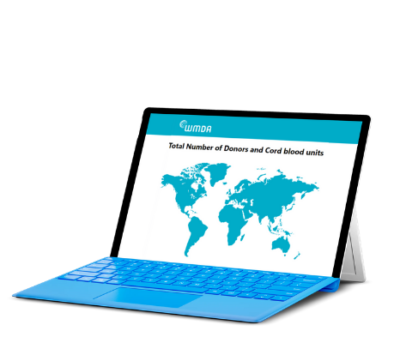Donor RegistryA Bridge Between Donors and Patients
What Is a Donor Registry?
A donor registry is a non-profit organisation that plays a pivotal role in the lifecycle of cellular therapies, such as stem cell and bone marrow transplants. These registries are essential in connecting volunteer donors with patients in need of life-saving transplants.
The WMDA Network of Registries
Connecting Donors and Patients Worldwide
The Role of Donor Registries
-
Recruitment: Registries actively recruit healthy individuals to join as potential stem cell donors.
-
Testing and Typing: They perform Human Leukocyte Antigen (HLA) typing to determine compatibility between donors and patients.
-
Education and Support: Providing donors with comprehensive information about the donation process and offering support throughout.
-
Collection and Transportation: Coordinating the collection of stem cells and ensuring their safe transport to the transplant center.
-
Follow-up: Monitoring the health and well-being of donors post-donation.
WMDA's Role in the Registry Community
The World Marrow Donor Association (WMDA) plays a key role in global registry community. Through its Search & Match Service, WMDA manages an inventory of over 42 million donors available for transplantation. This service helps match patients with suitable donors for life-saving transplants.
WMDA ensures the safety of both patients and donors by:
-
Certifying registries that adhere to high standards.
-
Evaluating adverse events to ensure quick communication and effective management.
-
Conducting regular expert meetings to exchange best practices and improve the quality of care.
-
Sharing best practices.
Ensuring Safety and Ethical Standards
World Marrow Donor Association (WMDA) and its members are committed to ensuring the safety of both recipients and donors. The WMDA certification program adheres to the highest international standards and ethical principles, including:
-
Protection of Personal Data: Ensuring the donor’s identity remains confidential.
-
Accurate Education: Providing donors with comprehensive information about the donation process.
-
Donor Rights: Enabling voluntary donation with the freedom for donors to change their minds.
-
Authorized Use: Safeguarding against blood stem cell trafficking and ensuring cells are only provided to authorized transplant centers.
-
Informed Consent: Mandating each donor to sign informed consent, with unemancipated minors and legally incompetent adults prohibited from serving as donors.
